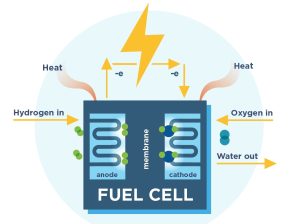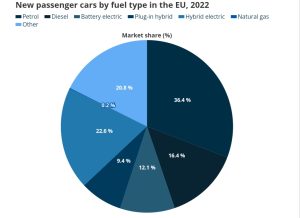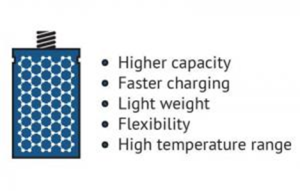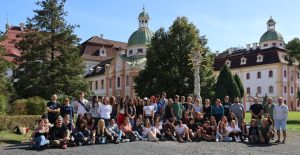Since 1994 there has been a network of 16 schools from ten European nations doing projects in Saint Marienthal (CZ, D, F, GB, I, LV, LIT., PL, S, BOS). They do not only use their classrooms to work on single subjects related to European issues, but have made the „House of Europe“ their classroom. The ultimate goal of the Network St. Marienthal is to promote the ideal of a united Europe by creating a „European educational area on a small scale“, by en- couraging young people to etsablish personal contacts and by arousing their interrest in solving economic, political and ecological pro- blems across borders. On the initiative of St. Ursula-Schule Hannover tea- chers of the partner schools met yearly in the convent of St Marienthal between 1994 and 1996 in order to plan common activities and so developed ideas for fu- ture international meetings of pupils to be organised in the context of projects. In 1997 two projects could be realized for the first time: a music workshop and a central meeting with par- ticipants from all partner schools of Network St. Marienthal. The focus of this meeting was on ecological and economic problems of energy production by burning brown coal in the trinagle between Germany, Poland and the Czech Republic. Focussing on current problems as well as encouraging young people to start something new also played an essential role during the second central international meeting of pupils at St. Marienthal in the following year 1998. The subject of the history work- shop was „ From the Second World War to the House Europe “. At the end of a project implemented in 1999-2000 there was a concept of a house for the accommodation of disabled persons („Ecological house“), built sustainably with special consideration for the needs of disabled people. In 2001 and 2002 we worked on a project called “European theatre”. In 2003 and 2004 we dealt with intercultural conflicts in the seminar entitled “European film”. In 2005 and 2006 the subjects “Democracy and media” and „Right-wing extremism“ were investigated. In 2007 the subject was “Together for Europe – 50 years of Roman Treaties”. Since 2002 an additional network meeting has taken place once a year under the motto “reminding you of the past to bring on the future“. Youngsters from the network schools meet for six days with concentration camp survivors. In discussion rounds they review the experiences of the former concentration camp prisoners and in presentations they report about traces of the dictatorships in their home countries. The projects are planned to involve a great number of different disciplines to appeal to youngsters with different educational backgrounds and talents. The projects require that the international work groups be in close contact with each other for one year via the internet to work together on the tasks which were given to them. The examples of the various seminars show that the young people of Western and Eastern Europe are willing to approach each other, to listen to each other and to cooperate with each other in an imaginative way if they are given the opportunity to do this in a suitable atmosphere. It is important for the achievement ofthe ultimate goal of the network projects that the participants impart their personal experiences from the international meetings to give other people the chance to develop. That is why great efforts were made to reach a bigger publicity after the meetings, notably by presentations at the different partner schools, by slide shows or the presentations of films which were made during the meetings, by exhibits in churches and by contacts with broadcasters and the press.
Over the years Network St. Marienthal has developed into a living organism, which supports the co-ope- ration between individual schools in a different way: by contacts among the tea- chers, by student exchange programmes and also by the possibility for single pupils to do spells of work experience in neighbouring European countries, faci- litated by partner schools. The international meetings of pupils at the convent of St. Marienthal still remain the high points of the pro- ject terms and are an engine of innovation because here ideas and activities of the partner schools are concentrated in a „hotbed“.
The present project includes a lot of challenges, but coping with them will hopefully lead to the improvement of the communication structures, widen the variety and broaden support for the projects among the pu- pils of the partner schools.
At the end there is one thing which should not go unmentioned: a network like the one portrayed above needs the help of friends, and we would like to use this occasion to express our gratefulness for all the material and ideal support which we have found up to now. Above all we would like to thank for the support by the EU, the Free State of Saxony, the Robert-Bosch-Stiftung and the Deutsche Bundesstiftung Umwelt (German Foundation for the Environment) which generously funded the network‘s activities.



